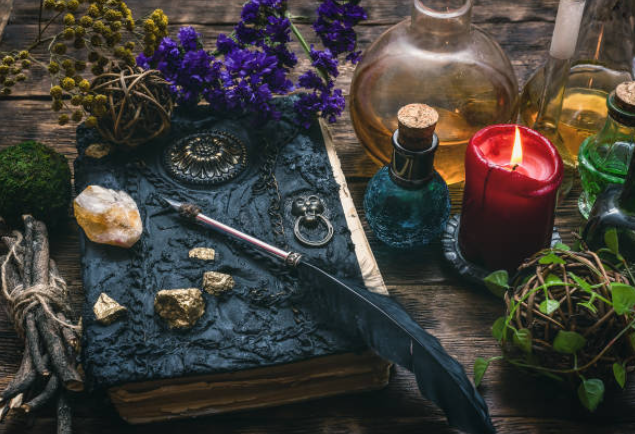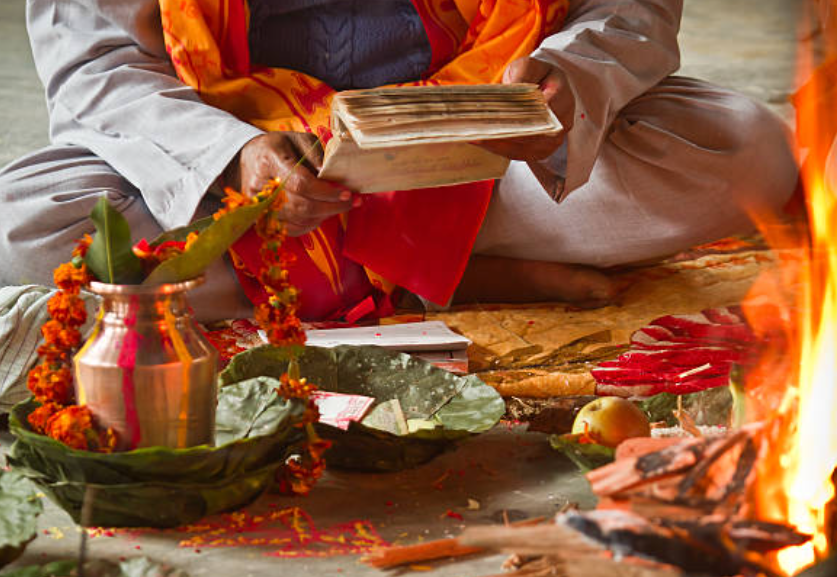What is druidism
Druidism is a term often used without real knowledge of its exact meaning. This mystical-sounding name hides a great deal of mystery for most of us. When we think of a Druid, we quickly think of a Celtic hermit who is a nature fanatic and who goes out to gather food to make potions and other elixirs in a large magic cauldron. However, this idea of druids is not as accurate as one might think.
For centuries, Celtic Druidism was primarily a function within society that gradually evolved over the years into the esoteric and spiritual practice of modern Druidry.
In this article, we will discuss Druidism and its evolution through the ages so that this enchanted term will no longer hold any secrets for you!

History of druidism
The original Druidic culture flourished around the same time as the Roman Empire and Julius Caesar. Druids and druidesses formed a professional class in Celtic and Gaulish societies. The function of druid was attributed to people in charge of representing the spiritual and judicial authority. This function was granted only to the most educated people. The ancient writings found evoke an apprenticeship of 20 years. From this great knowledge, the appellation "Druid" which means "The wise one", was conferred to them. Most of them were scribes, priests, philosophers, teachers and scholars.
Druids conducted all public rituals, which were normally held in groves fenced by sacred trees. In their role as priests, they did not act as mediators between God and man, as is often erroneously claimed, but as conductors of the rituals. Like the shamans who guided the rites of their tribe.
Many Celtic Gods and Goddesses were worshipped by the Druids. Esoteric forms and symbols common to Wicca, Paganism and other ideologies are found, such as the triple moon, the Celtic tree of life, or the Isle of Man flag, which is made up of a triskel, an ancient Druid symbol composed of three curved branches.
What is a druid
In ancient Celtic communities, the role of the druid held many powers within the society. They were in charge of transmitting their knowledge to the tribes: philosophy, medicine, magic, divination, nature or the Gods. They also held the judicial power to maintain order within the clans. The druids were scholars but also magistrates of the society and they often condemned the criminals for their crimes. There were three categories of druids.
Each druidic order had its own role to play with the inhabitants of the region. Of the three different ranks of Druidry, the arts were given to the bards, the skills of prophecy and divination to the Ovates, and the philosophical, teaching, counseling, and judicial duties to the Druids. Originally, the name "Druid" was specific to one of the categories of Druidism. However, the differences in functions and powers were soon erased to form a single unit, the Druids.
- THE BARDES
Singers and poets of the Celtic Iron Age, they recited literary works and poetry. As orators, their mission was to tell the king's epic tales as well as the myths and legends of mythology. They were represented as the guardians of the king's sacred word.
- THE OVATES
The ovates are diviners in charge of worship, spiritual and physical medicine as well as divination. These priests and scholars of nature organized funerals and other ceremonies to bless the people. The Ovates studied life after death, reincarnation and other occult forms of magic. They were the native healers of the Celts. They specialized in divination by prophesying the future. They used many techniques to predict the future such as meditation, the study of bird flight, dream interpretation, etc.
- THE DRUIDS
This category mainly consisted of magistrates, nature scholars and judges. Like the Ovates, the Druids studied nature, but on a much larger scale. The Druids believed that there was a balance to everything, and that it was necessary to maintain it. Unlike the Ovates, the Druids had power and judicial authority.

Modern druidism
Modern Druidism is a spiritual movement that generally promotes harmony, connection and respect for the natural world. The fundamental principle of Modern Druidism is the respect and reverence for nature to reconnect with its wildness.
The modern world has seen a renewed interest in Druidic beliefs. In today's society, modern Druidism is very similar to the principles of shamanism. Today, contemporary Druids follow the ancient teachings of harmony and connection with the natural world. Druids believe in the worship of spirits and natural powers.
This ideology encompasses a return to our roots and an awareness of the environment around us. This practice strives in simple gestures to reconnect with one's wild nature and awaken one's spirituality: making sacred objects, practicing rituals, being in harmony with one's body and mind, offering beneficial foods to one's body, mind and soul, discovering one's true essence, rediscovering nature and its virtues, and much more.
Don't worry, unlike the ancient druids, you won't need 20 years of training to try druidism!








